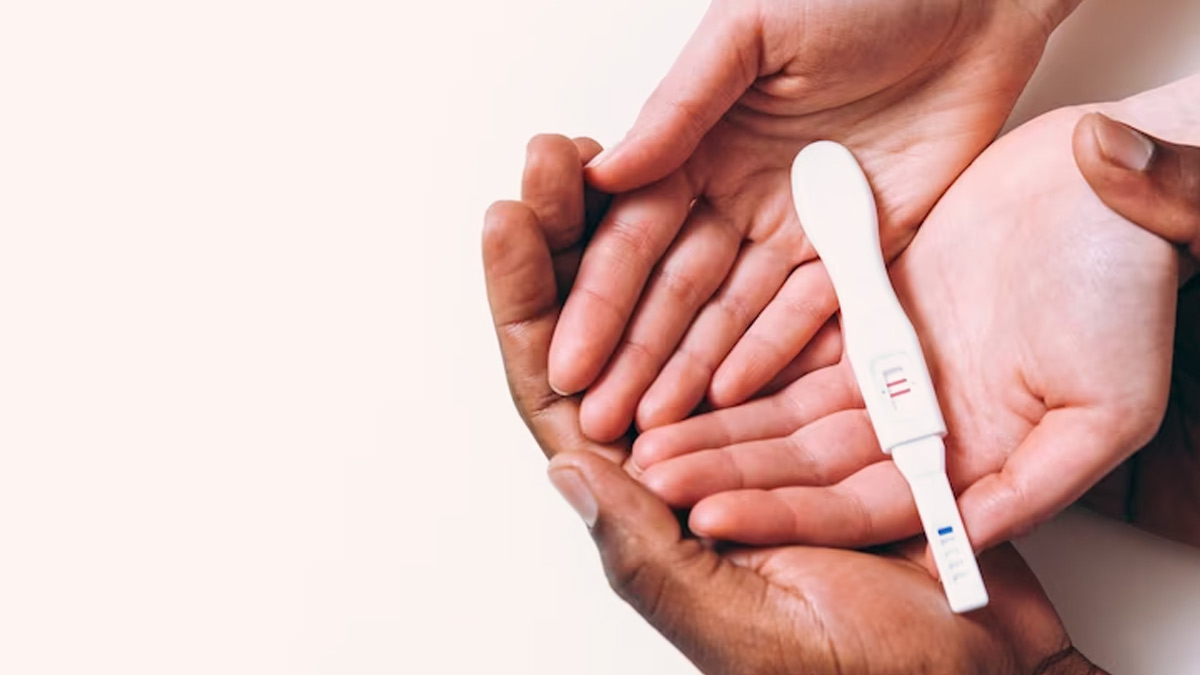
Regular physical activity serves as a fundamental pillar for preventing chronic diseases and fostering a resilient state of health and fitness. Its intricate correlation with enhanced fertility outcomes is attributed to its role in hormonal regulation and the optimization of reproductive functions. Beyond stress mitigation, physical activity also plays a crucial role in maintaining an optimal body weight, pivotal for promoting optimal fertility.
Table of Content:-
Studies indicate that moderate exercise is associated with improved ovulation in females and heightened sperm quality in males. It's important to note that engaging in high-intensity interval training (HIIT) has positive effects on hormones and cardiovascular health in obese women with PCOS. However, concerns about the impact of intense workouts on fertility emphasise the need for a balanced approach.

Also Read: Are You Often Stressed? Expert Shares Signs of Stress You Shouldn't Ignore
We spoke to our expert Dr Prachee Kulkarni – Sr. Consultant, Kukatpally, Ferty9 Fertility Center as she explains that to differentiate between moderate and intense exercise, intensity can be gauged by factors such as heart rate, breathing rate, and the ability to carry on a conversation during the activity. Moderate exercise increases heart rate up to 50-60% of your maximal heart rate while intense exercise up to 70-80% of your maximal heart rate.
Does Intense Exercise Impact Fertility?
Here is a comprehensive exploration of how exercise influences fertility:
1. Disruption of Hormonal Equilibrium
Intense exercise can disturb hormonal balance in both males and females by increasing cortisol levels, thereby disrupting the delicate hormonal equilibrium. In males, strenuous workouts may temporarily suppress testosterone production, affecting muscle growth and recovery. In females, excessive exercise can lead to disruptions in oestrogen levels, potentially causing irregular menstrual cycles or even amenorrhea. Additionally, intense exercise may alleviate stress hormone levels, such as adrenaline, contributing to hormonal fluctuations and overall imbalance. Proper rest, nutrition, and exercising in moderation can help mitigate these effects and maintain hormonal equilibrium
2. Irregular Menstrual Cycle and Ovulation
Intense exercise has the potential to disrupt the menstrual cycle by influencing hormonal balance, leading to irregularities in ovulation timing. Elevated levels of physical activity may suppress reproductive hormone production, delaying or halting ovulation. This disruption can result in irregular menstrual cycles or amenorrhea, the absence of menstruation. Over-exercising can also impact fertility by interfering with the body's ability to conceive during ovulation. However, moderate exercise supports reproductive health by regulating hormone levels and promoting overall well-being.
3. Sperm Functionality
Moderate physical activity is considered beneficial for male fertility. However, excessive endurance exercises or activities that generate heat in the groyne region, such as cycling, may elevate scrotal temperatures, potentially impairing sperm quality and fertility

Also Read: Are You Often Stressed? Expert Shares Signs of Stress You Shouldn't Ignore
4. Energy Deficiency
Engaging in vigorous physical exercise without consuming sufficient calories to fuel the activity can result in an energy shortfall. This deficit can have detrimental effects on reproductive function for both men and women. An imbalance between energy expended during intense exercise and calories consumed may lead the body to prioritise vital functions over reproductive processes. In men, inadequate calorie intake relative to energy expenditure can disrupt hormone production, including crucial testosterone levels for sperm production and overall reproductive health. In women, energy deficiency can disturb the delicate balance of hormones involved in menstruation and ovulation, potentially leading to irregular periods.
Exercise can significantly influence fertility, with outcomes varying based on factors such as existing BMI ,exercise intensity, duration, type, overall health, and lifestyle. Striking a balance in physical activities and avoiding extremes is crucial. Moderate, regular exercise, coupled with a healthy lifestyle and sufficient rest, can enhance fertility prospects for both men and women. In case of fertility concerns, seeking guidance from healthcare experts is recommended for personalised advice on optimising exercise and fertility.
Also watch this video
How we keep this article up to date:
We work with experts and keep a close eye on the latest in health and wellness. Whenever there is a new research or helpful information, we update our articles with accurate and useful advice.
Current Version